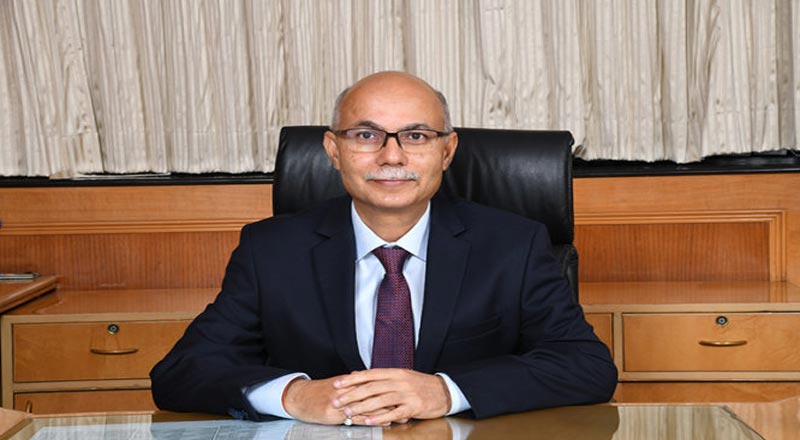US and India Join Forces for Landmark Space Mission
US space agency NASA announced that it is set to launch a historic private space mission in collaboration with the Indian Space Research Organization (ISRO). Scheduled for June 10, the Axiom Mission 4 (Ax-4) marks the first time an Indian astronaut will travel to the International Space Station (ISS) via a private mission. Operated by the Houston-based Axiom Space and launched aboard SpaceX’s Falcon 9 rocket, this mission represents a new era in international space partnerships.
At the heart of this groundbreaking mission is Indian Air Force pilot Shubhanshu Shukla, who will serve as pilot—the first Indian astronaut to reach space in over four decades. The mission will not only highlight India's re-entry into human spaceflight but also underscore deepening US-India cooperation in the final frontier.
Mission Overview: Science, Diplomacy, and a Shared Orbit
The Ax-4 mission will lift off from NASA’s Kennedy Space Center in Florida on Tuesday, June 10, at 8:22 a.m. local time. Docking with the International Space Station is expected the following day, on June 11 at 12:30 p.m.
The two-week mission is rich in scientific, educational, and commercial goals. The multinational four-member crew will carry out five joint science projects and two STEM-related in-orbit experiments. NASA, ISRO, Axiom Space, and international collaborators have emphasized that Ax-4 is more than a technical mission—it’s a diplomatic and commercial milestone that paves the way for further global collaboration in space.
The mission will be commanded by veteran NASA astronaut and Axiom Space’s Director of Human Spaceflight, Peggy Whitson. Alongside Shukla as pilot, the crew includes Slavoj Ujnanski Wisniewski from Poland and Tibor Kapu of Hungary—both flying as mission specialists under the European Space Agency (ESA). For both Poland and Hungary, this marks their astronauts' first visit to the ISS.
Shubhanshu Shukla: A Historic Return for India
For India, Shubhanshu Shukla’s presence aboard Ax-4 is profoundly symbolic. It has been 41 years since Rakesh Sharma became the first Indian in space in 1984. Shukla’s mission thus rekindles India’s human spaceflight dreams and reflects the nation's evolving role in global space exploration.
The 39-year-old Indian Air Force pilot has undergone extensive training under both ISRO and NASA. His selection is a result of increasing Indo-US space collaboration, especially under the bilateral agreement signed by President Donald Trump and Prime Minister Narendra Modi. Their joint commitment to space cooperation laid the groundwork for this milestone.
Shukla’s role as pilot is not just ceremonial—he is an integral part of mission operations, flight coordination, and safety oversight. Carrying Indian pride on his shoulders, he’ll also carry a piece of home: ISRO has prepared a menu of Indian delicacies like aam ras and moong halwa to help him stay connected to his roots during his stay in orbit.
His journey has sparked waves of excitement back home. In his hometown of Lucknow, the mood is one of joy, pride, and prayer. His father, Shambhu Dayal Shukla, expressed the family's emotions: “We are not scared now. We are happy that his name will go in history books.” His mother, Astha Shukla, echoed that hope: “He is very excited to do something new for India.”
A New Chapter in Global Spaceflight
This mission is emblematic of the shifting dynamics in space exploration. Once dominated solely by state-run agencies, human spaceflight is now increasingly supported—and driven—by private companies. Axiom Space, in partnership with SpaceX, is pioneering this model of commercially-led missions to the ISS, a trend likely to define future low-Earth orbit operations.
The International Space Station itself took to social media platform X (formerly Twitter) to confirm the mission timeline and underscore its significance. NASA, for its part, will take over operational responsibility once the Dragon spacecraft docks, overseeing the crew’s stay and safe return.
Beyond the science and symbolism, Ax-4 serves as a living testament to what nations can achieve when they collaborate, pooling expertise and resources to push human boundaries outward. It is a story of diplomacy, trust, and ambition converging in the silence of space.
A Shared Dream, A Shared Sky
The launch of Axiom Mission 4 is not just another rocket lifting off—it’s a convergence of dreams. For India, it is a revival of human spaceflight aspirations long delayed. For NASA and Axiom, it represents a new frontier in commercial exploration. And for the world, it’s a sign that space is becoming a shared domain—one no longer defined by borders, but by cooperation.
As Shubhanshu Shukla takes flight, he carries the legacy of a nation and the aspirations of millions. And as India returns to space after 41 years, the world watches a historic chapter unfold—one that blends tradition with transformation, and national pride with planetary purpose.
(With agency inputs)






















